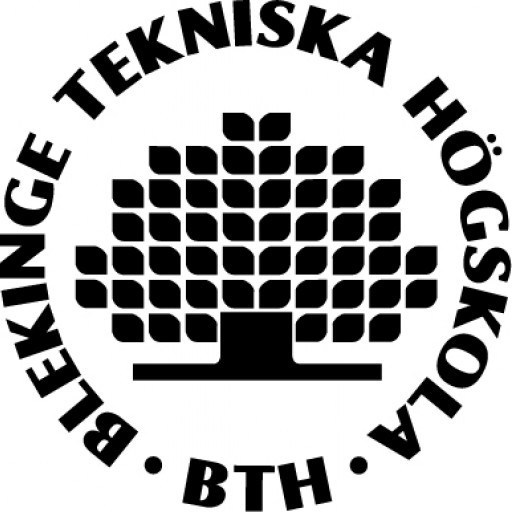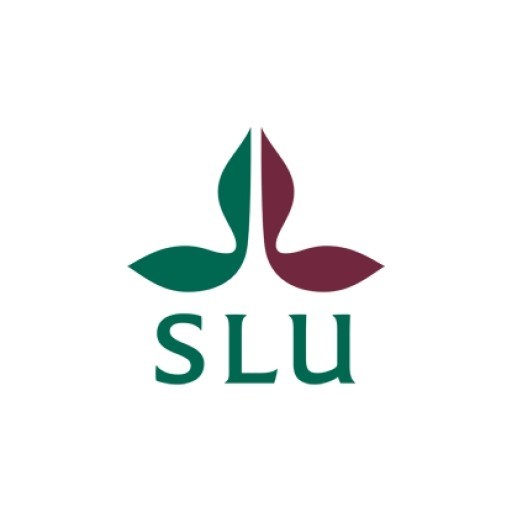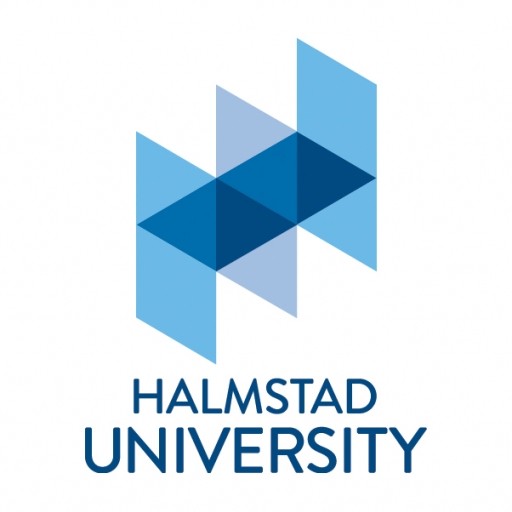Photos of university / #blekingetekniskahogskola
Sustainable Product-Service System Innovation is a cutting-edge master's program offered by Blekinge Institute of Technology, designed to equip students with the skills and knowledge necessary to develop innovative, sustainable solutions within the framework of product-service systems. This program focuses on transforming traditional product-based offerings into integrated, eco-friendly, and socially responsible service-oriented business models that meet the evolving needs of society and the environment. Throughout the coursework, students explore multidisciplinary approaches, combining engineering, design, business development, and environmental sciences to foster sustainable innovation. The curriculum emphasizes systemic thinking, life-cycle analysis, and circular economy principles, enabling participants to design products and services that minimize resource consumption, reduce waste, and promote sustainable use of materials. Students engage in hands-on projects, case studies, and collaborations with industry partners, providing real-world experience in developing sustainable solutions that can be implemented across various sectors, including manufacturing, technology, and service industries. Additionally, the program encourages entrepreneurial mindset and strategic thinking, preparing graduates to lead initiatives that balance economic growth with environmental stewardship. With access to state-of-the-art laboratories and research facilities, students can experiment with emerging technologies such as smart systems, digital manufacturing, and eco-design. Graduates of this program will be well-equipped to contribute to the transition towards sustainable development, working as innovators, consultants, and managers in organizations committed to sustainability practices. The interdisciplinary nature of the program also fosters cross-sector collaboration and networking opportunities, ensuring graduates are prepared to address complex global challenges in sustainability and product-service innovation. Whether aiming to drive change in existing organizations or to start new ventures, students will acquire a comprehensive skill set to lead the future of sustainable product-service system innovation.
The Sustainable Product-Service System Innovation program at Blekinge Institute of Technology is a comprehensive master's degree designed to equip students with the knowledge and skills necessary to develop innovative, sustainable solutions that integrate products and services. This interdisciplinary program focuses on fostering creativity and critical thinking to address complex environmental and social challenges faced by modern industries. Throughout the program, students will explore the principles of sustainable development, circular economy, and design thinking, applying these concepts to real-world contexts. The curriculum emphasizes the importance of collaboration across sectors and disciplines, encouraging students to engage with stakeholders such as businesses, government agencies, and communities to co-create sustainable product-service systems that enhance quality of life while minimizing environmental impacts.
Students will study a range of topics including sustainable design, innovation management, lifecycle assessment, digital transformation, and business model development. The program combines theoretical coursework with practical projects, enabling students to gain hands-on experience in designing and implementing sustainable solutions. Collaborations with industry partners and participation in research projects ensure that graduates are well-prepared to work in various roles related to sustainable development, innovation management, and circular economy strategies. In addition, students will develop skills in communication, teamwork, and entrepreneurship, empowering them to lead initiatives that promote sustainability in diverse organizations.
Graduates of the Sustainable Product-Service System Innovation program will be equipped to contribute meaningfully to the transition towards a more sustainable society by designing innovative, value-creating solutions that align economic, environmental, and social goals. They will be prepared for careers in consultancy, product development, research, and policy-making, among other fields. The program's emphasis on sustainable innovation, combined with BTH's strong focus on entrepreneurship and collaboration, provides a solid foundation for students aiming to become leaders in the transition to sustainable, circular economies.
The Bachelor’s Degree Programme in Sustainable Product-Service System Innovation at Blekinge Institute of Technology requires applicants to meet specific admission criteria to ensure successful completion of the program. Prospective students must hold a Swedish upper secondary school diploma or an equivalent qualification recognized by the Swedish Council for Higher Education. Proficiency in English is mandatory, demonstrated through recognized tests such as IELTS with a minimum overall score of 6.5, TOEFL iBT with at least 90 points, or equivalent certifications. Additionally, applicants should have completed previous studies relevant to engineering, industrial design, sustainability, or related fields, demonstrating a solid foundation in technical and environmental concepts.
The admission process evaluates both academic merits and motivation to pursue sustainable innovation. Applicants are often required to submit a completed application form, academic transcripts, English language proficiency proof, CV, and a personal statement outlining their interest and experience in sustainable product-service development. Preferred candidates typically possess a background in technical sciences combined with an interest in sustainability issues, systems thinking, and innovative design approaches.
Furthermore, the program favors applicants with relevant work experience or participation in projects related to sustainability, product development, or service innovation. While prior knowledge in topics such as lifecycle analysis, eco-design, and systems engineering is advantageous, the program is designed to provide foundational courses for students from diverse academic backgrounds. International students are encouraged to apply and must meet the same entry requirements as Swedish applicants.
BTH aims to admit students who demonstrate critical thinking, creativity, and a proactive attitude toward developing sustainable solutions. The selection process may include interviews or assessments to evaluate motivation and potential. Admission decisions are made based on the completeness of application documents, academic achievements, and suitability for the program. The program requirements are designed to foster interdisciplinary collaboration and innovation, preparing students to address complex sustainability challenges through product-service system development.
The financing of the Sustainable Product-Service System Innovation programme at Blekinge Institute of Technology is primarily supported through a combination of Swedish national funding, European Union grants, and tuition fees. As a government-funded university, BTH benefits from Swedish educational funding policies that allocate resources to promote innovation, research, and development in sustainability and engineering disciplines. Students participating in this programme typically pay tuition fees, which vary depending on the student's country of residence. For international students, tuition fees are established in accordance with the university's policies, contributing to the programme’s financial sustainability.
In addition, the programme often attracts project-based funding from national agencies such as Vinnova, the Swedish Innovation Agency, which provides grants for research and development projects focused on sustainable technologies and innovative systems. European Union funding programmes, such as Erasmus+ and Horizon Europe, also support collaborative projects involving students, faculty, and industry partners to foster sustainable development and circular economy initiatives. These externally sourced funds help cover costs related to research activities, internships, and international mobility opportunities associated with the programme.
Moreover, industry partnerships play a crucial role in the financing model. Many companies involved in sustainability and innovation sectors sponsor student projects, provide internships, and contribute resources that enhance the practical learning environment. Such collaborations not only facilitate real-world experience for students but also strengthen the financial base of the programme through sponsorship agreements and research grants.
The university may also receive donations and sponsorship from private entities who are interested in advancing sustainable practices and innovation ecosystems. These funds are used to upgrade facilities, develop new course modules, and support student research activities. Overall, the financial structure of the Sustainable Product-Service System Innovation programme at Blekinge Institute of Technology is a comprehensive blend of governmental support, European funding, industry collaboration, and student tuition fees, ensuring the programme’s continuity and growth in the pursuit of fostering sustainable development and technological innovation.
The Sustainable Product-Service System Innovation program at Blekinge Institute of Technology (BTH) is designed to equip students with the skills and knowledge necessary to develop innovative solutions that focus on sustainability and environmental responsibility within product and service systems. This program emphasizes the integration of sustainable development principles into the design, implementation, and management of product-service systems (PSS), which are approaches that combine products and services to create enhanced value for customers while reducing environmental impacts. Students in this program are introduced to the core concepts of sustainable innovation, lifecycle thinking, and circular economy principles, enabling them to contribute to the transition towards more sustainable business models.
Throughout the program, students work on practical projects that involve analyzing existing systems, identifying opportunities for sustainability improvements, and designing new integrated solutions that are economically viable, environmentally sound, and socially responsible. The curriculum covers a broad range of topics including sustainable design, business model innovation, user-centered design, lifecycle assessment, and digital technology integration, all tailored to foster a systemic understanding of sustainable product-service development. The program also emphasizes interdisciplinary collaboration, encouraging students to work with peers from various fields such as engineering, business, and design to develop comprehensive solutions.
Graduates of the program are prepared to assume roles in industries focused on sustainable innovation, consultancy on eco-efficient solutions, and product-service system development within organizations aiming to reduce their environmental footprint. The program is delivered through a combination of lectures, workshops, case studies, and project-based learning, often involving collaboration with industry partners. This experiential learning approach ensures that students gain real-world insights and practical skills applicable to the evolving landscape of sustainable business practices.
Located at Blekinge Institute of Technology, an institution known for its strong emphasis on innovation and sustainable development, the program benefits from cutting-edge research, expert faculty, and a vibrant academic community dedicated to technological and societal advancement. The program aims to foster a new generation of professionals capable of leading sustainable transformation in various sectors by providing them with a comprehensive understanding of how to design, develop, and implement sustainable product-service systems effectively. Overall, the program prepares students not only for current industry needs but also for future challenges related to sustainability, making them valuable contributors to global efforts towards environmental stewardship.






